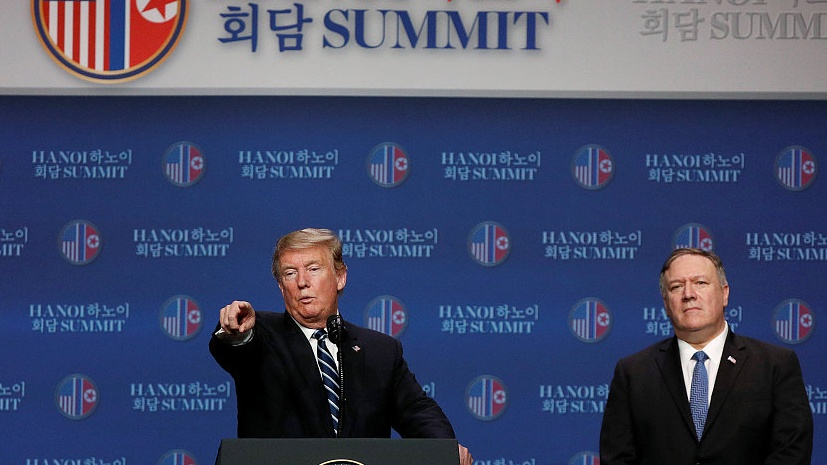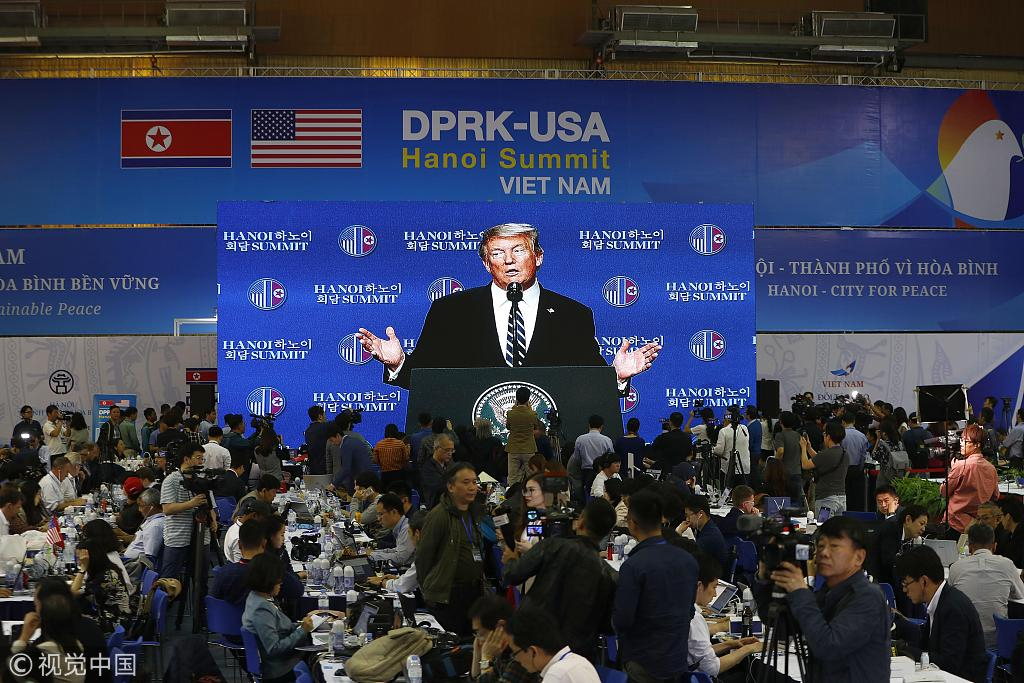
World
23:00, 28-Feb-2019
Trump's rare move in Hanoi: Calling on reporters from China
Updated
14:00, 01-Mar-2019
By Yu Jing

Speaking at the news conference following the abrupt end of his summit with the Democratic People's Republic of Korea (DPRK) leader Kim Jong Un, Trump took a rare move and answered multiple questions from reporters affiliated with Chinese news organizations.
Addressing a question from CGTN reporter Jessica Stone on the role of China in facilitating U.S.-DPRK engagement, Trump hailed China as having been "a big help", acknowledging the great influence China has on the issue. During the 35-minute press conference, Trump also answered questions from at least five other reporters from Chinese organizations, and a few others from the ROK.
In a packed auditorium filled with hundreds of reporters, China having such a high presence may be Trump's nod to the importance of the country's role in achieving peace in the Korean Peninsula.
But speculations abound that Trump picked foreign reporters in a bid to avoid answering the Cohen question. On the night before the press conference, Trump's former lawyer Michael Cohen, in his testimony before Congress, dropped the bombshell statement accusing Trump of "racist" and laid out detailed allegations of Trump's role in a hush-money scheme.

At the international media center of the Trump-Kim Summit. /VCG Photo
At the international media center of the Trump-Kim Summit. /VCG Photo
CNN White House reporter Jim Acosta, who did not get a chance to ask question during the press conference, said in a tweet that "Trump largely steered clear of White House press corps…which helped him avoid the Cohen questions."
Jane Tang, Sina News reporter who was picked by Trump during the press conference, said that slots at the press conference, formerly reserved exclusively for white house press corps, were suddenly opened to all journalists.
At around 9 a.m., journalists who were sent by media outlets all over the world to cover the summit saw a notice in the international media center, saying slots at the press conference would be granted on a first come first serve basis.
It was not clear why the White House changed the rule for press attendance on such a short notice.
Later, in a dramatic turn of events, talks between Trump and Kim wrapped up earlier than expected, the scheduled signing ceremony canceled and Trump's press conference moved up two hours earlier than planned.
Trump, in the press conference, addressed the Cohen question only once. When pressed on his response to Cohen by an American reporter, Trump called the congressional hearing "fake" and reiterated his insistence that there was no collusion between his campaign and Russia during the presidential election.
According to Politico's report, a day earlier, four American journalists were barred from covering the dinner meeting between Trump and Kim, shortly after the press corps reporters shouted questions regarding Cohen's testimony during a photo opportunity between the two leaders.

SITEMAP
Copyright © 2018 CGTN. Beijing ICP prepared NO.16065310-3
Copyright © 2018 CGTN. Beijing ICP prepared NO.16065310-3